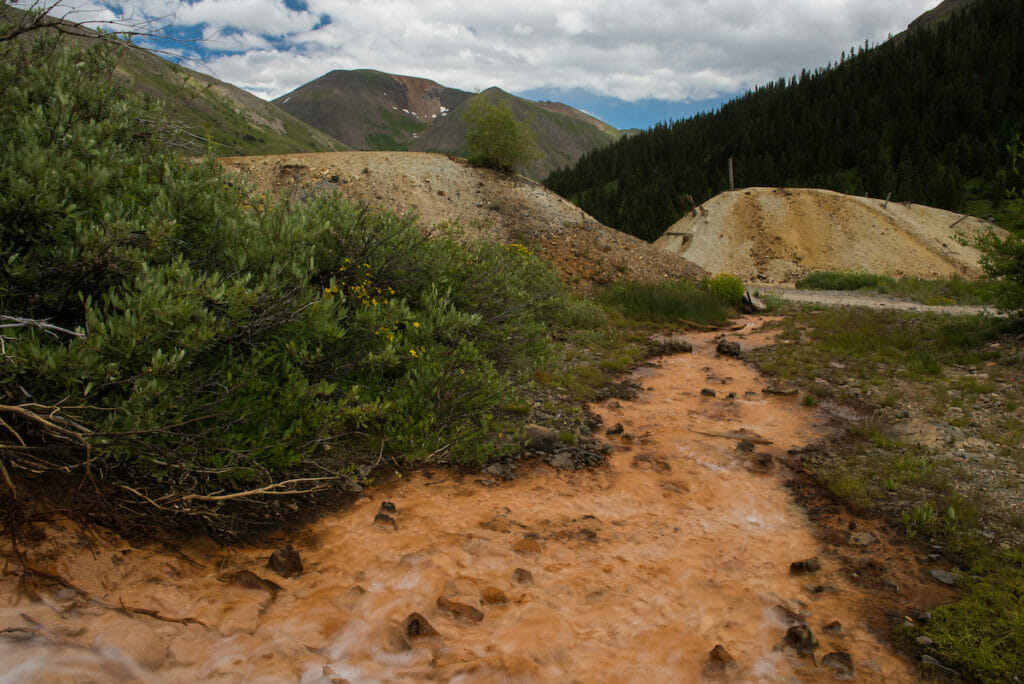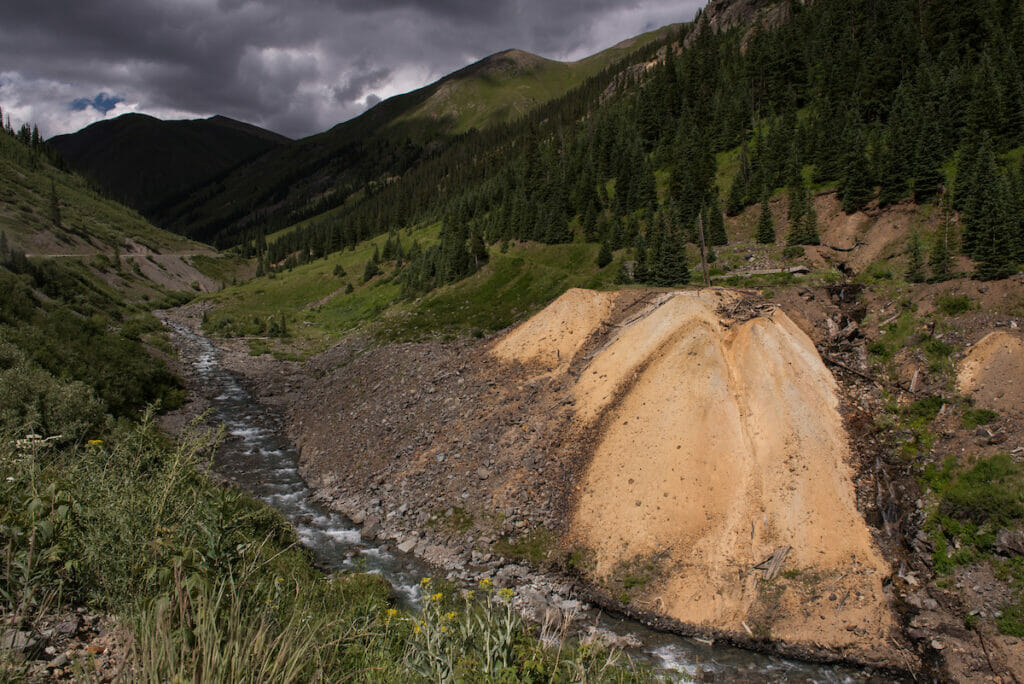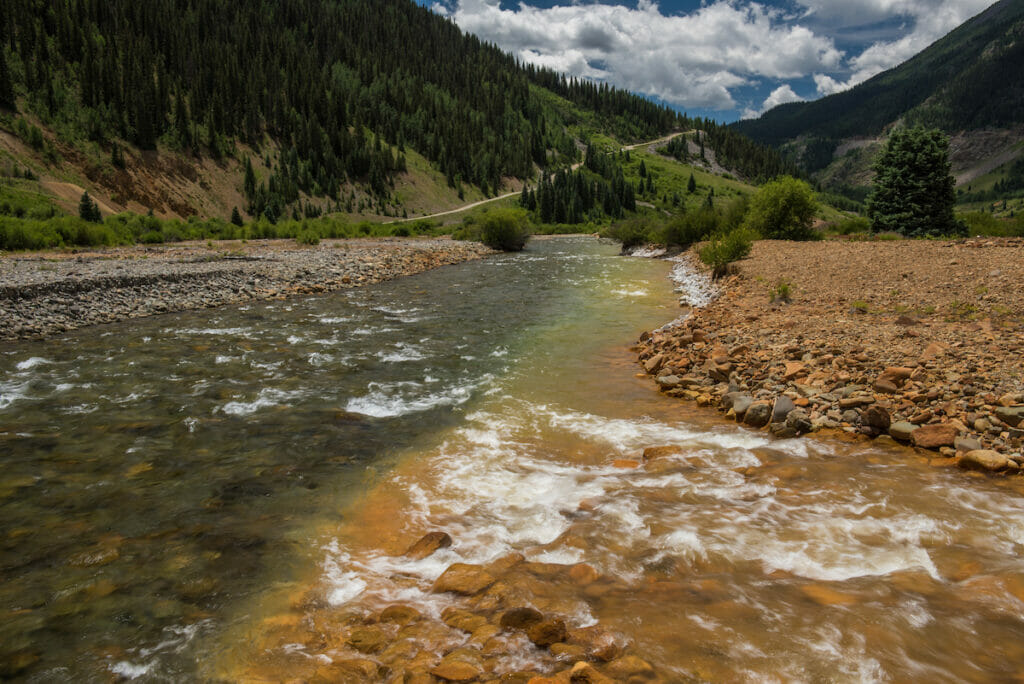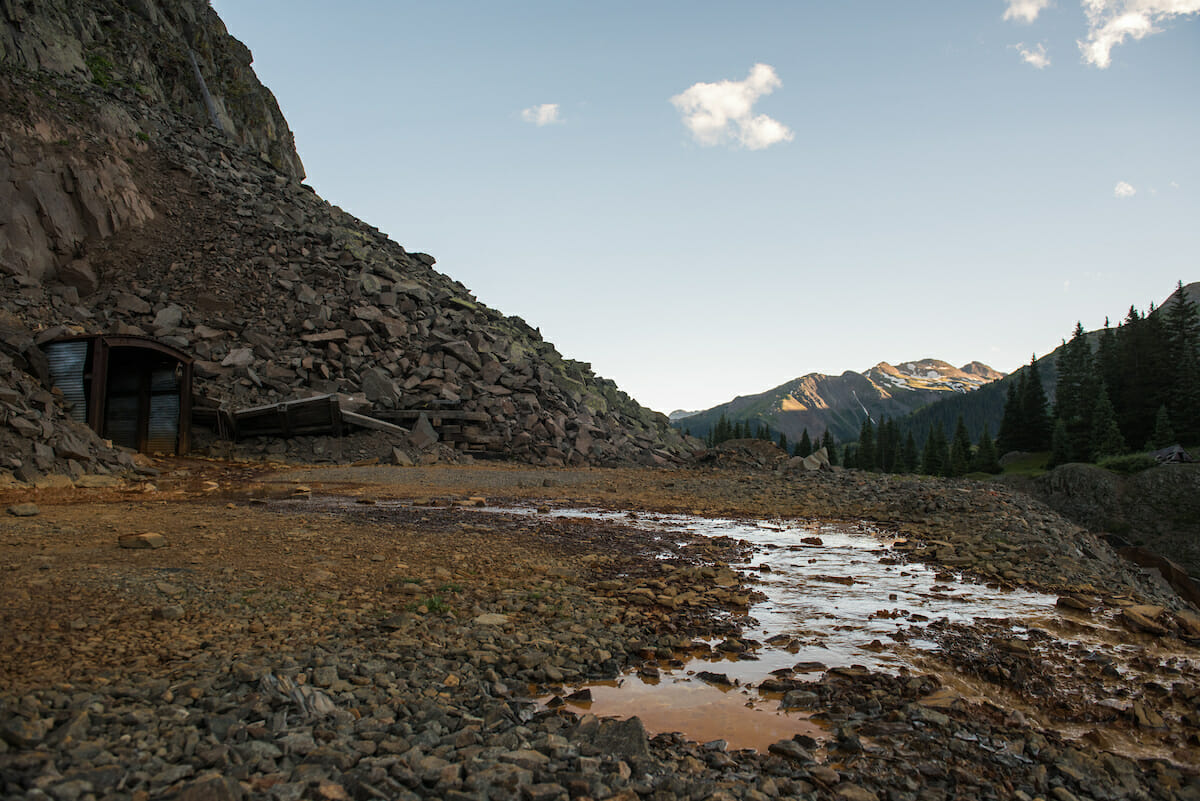A clean energy future and healthy watersheds depend on policy solutions for responsible mining. And we’re on it.
Let’s be honest, when you’re out on a river fishing, mining is probably the last thing you’re thinking about. And that’s understandable; it’s hard to focus on one of the biggest challenges of our time while trying to keep track of the tiny #20 Adams half invisible in the sun’s glare on the water.
It may not be obvious, but mining probably has a much bigger impact on your day of fishing than you may think. Sure, your reel is made of aluminum, your Prince nymph may have a tungsten bead and the SUV you drove to the river is not made of paper. Those things are obvious. Less obvious is that minerals like cobalt, nickel, lithium and copper are the raw materials of clean energy technologies to help combat climate change. But what is it about mining that makes this subject such a top priority for TU?
The simple answer is ‘habitat’.

Our long history of mining severely affects trout habitat
Healthy trout habitat starts with cold, clean water. And if there is one thing that has, and currently does, affect water quality – especially in the west – it’s historic, pre-Clean Water Act mining. The EPA estimates that 40 percent of western headwater streams are impacted by legacy mining water quality, with over 110,000 miles of streams currently listed as impaired for acidity and/or heavy metals. It is further estimated that over 500,000 abandoned mines dot the American landscape.
But TU is on it
This is why TU works so diligently on the issue of correcting water quality from legacy mining – and why anglers should too once we put up our rods after a day on the water. As examples, TU employs numerous mine remediation specialists who perform certain types of mine cleanup projects, from coal country in the east to hardrock mines in the west. And where federal law dissuades voluntary, third-party cleanups at abandoned mine sites, TU is working tirelessly to pass Good Samaritan legislation to promote the expanded scope of work our team can take-on to improve water quality. And coupled with this, TU supports the reform of the General Mining Law of 1872 to include the collection of royalties from mining operations on public lands to fund the new abandoned mine land program authorized in the Bipartisan Infrastructure Law of 2021.

But it’s not just correcting the mistakes of the past that drives our work in mining, it’s also making sure we don’t make those same mistakes twice. This is why we are working to develop and advance mining policy to promote responsible domestic mineral development, where necessary and suitable, especially for those minerals vital to renewable energy development and climate change mitigation. In 2020, TU and partners produced a report on ‘critical minerals’, those minerals essential to the economic and national security of the nation. The report, ‘Critical Minerals – A Conservation Perspective’ outlines TU’s recommendations to not only responsibly source the metals needed for renewable energy, but how to couple that with other policy recommendations to holistically address issues across the spectrum of mining.
In early 2022, the Biden administration announced the formation of the Interagency Working Group on Mining Laws, Regulations, and Permitting. The purpose of the working group was to bring together experts in mine permitting and environmental law – to review laws, regulations, policies and permitting processes pertaining to hardrock mineral development. The charge of this interdisciplinary workgroup was ultimately to produce a report for Congress and the Executive Branch recommending improvements to policies on sourcing minerals and how we mine responsibly on America’s public lands.

In September Biden’s Interagency Working Group released their report which outlined several policy recommendations that mirror our own, including calling on Congress to pass Good Samaritan legislation, responsible siting of domestic critical mineral development projects, and reasonable reforms to the 1872 Mining Law reform to help fund abandoned mine cleanups and ensure American taxpayers get a fair return for hardrock minerals extracted from public lands.
The report confirms we’re on the right track and that our focus on responsible mining is making a difference and having an impact with decision makers. This is why we do what we do at TU. Caring for and recovering rivers and streams so our children can experience the joy of wild and native trout and salmon is hard work, but it’s work we can accomplish together.



